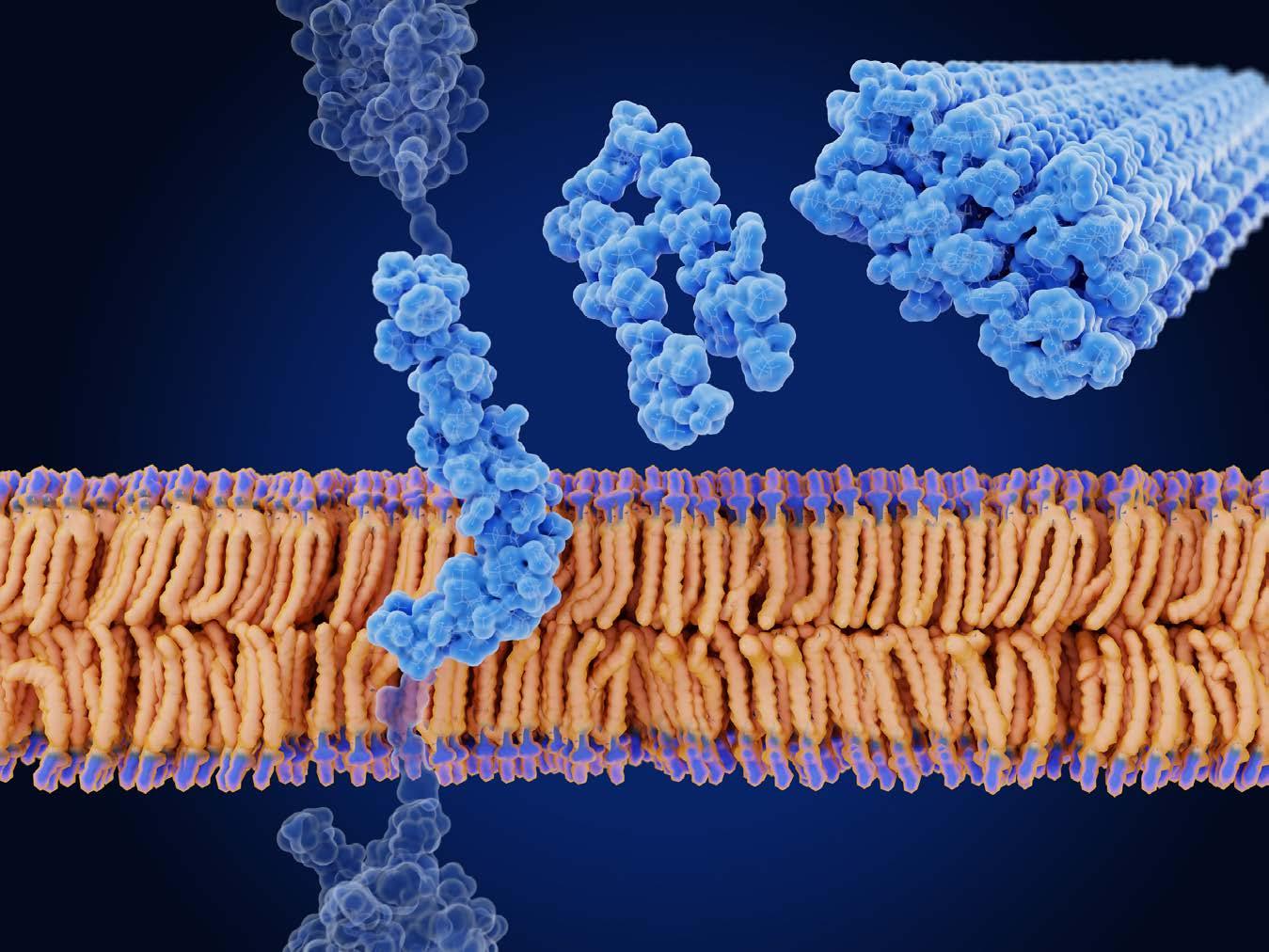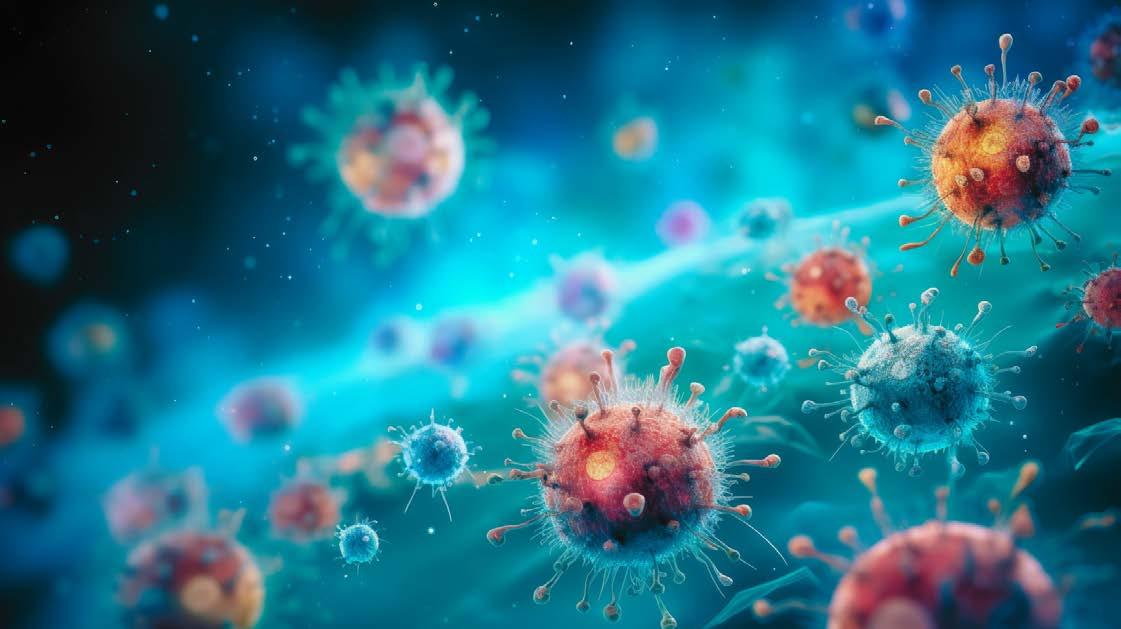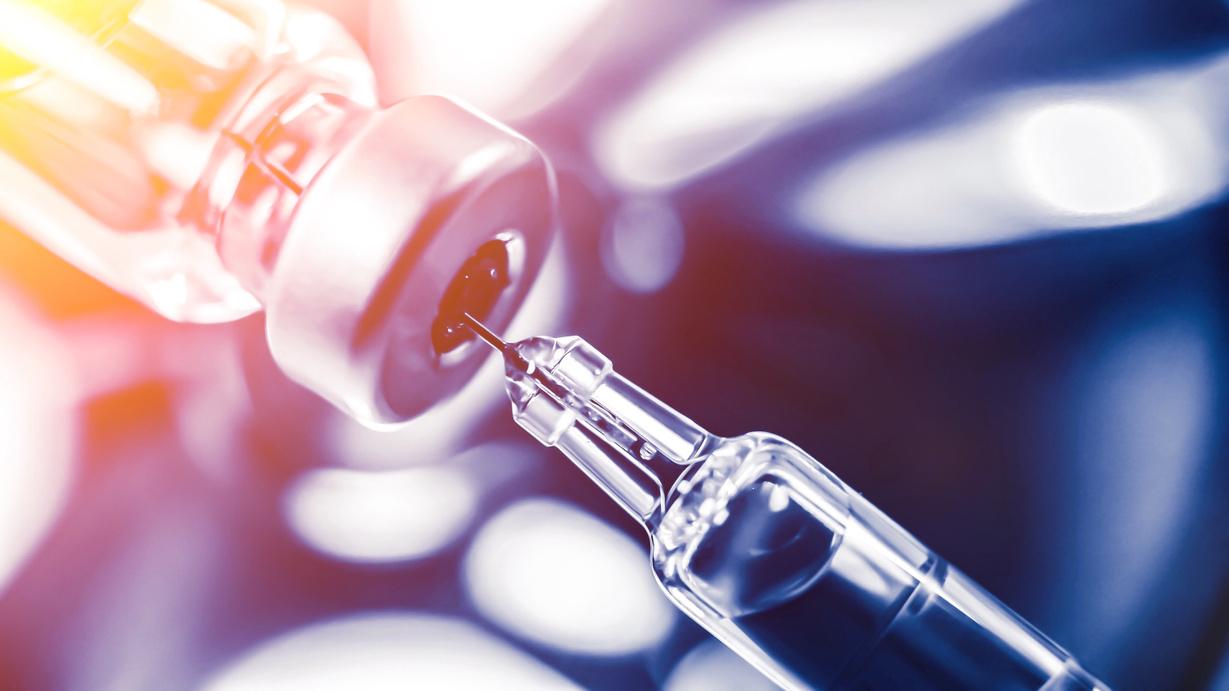HOW TO USE PEPTIDE THERAPY FOR COMPLEX CHRONIC ILLNESS
WhatYourDoctorMightBeMissing

Dr. Nafysa Parpia & Dr. Eric Gordon




Dr. Nafysa Parpia & Dr. Eric Gordon


Dr. Nafysa Parpia is a board-certified Naturopathic Doctor and Director of Naturopathic Medicine at Gordon Medical. Throughout her career in holistic medicine, she has focused on treating patients with complex chronic illnesses. She specializes in tick-borne illness/Lyme Disease, environmentally acquired illness, mold/mycotoxin illness, autoimmunity, fibromyalgia, Long Haul COVID, and ME/CFS (Chronic Fatigue Syndrome). She uses cutting-edge laboratory tests and deep intuition applied to the full range of scientific data to create comprehensive treatment plans that are highly personalized.
Dr. Parpia’s targeted system of care includes a synergistic blend of regenerative medicine, oral and intravenous micronutrient therapies, peptide therapies, botanical medicine, pharmaceuticals, injection therapies, and functional nutrition. Dr. Parpia is on ISEAI’s Board of Directors (International Society for Environmentally Acquired Illness) and is a Scientific and Medical Advisor for Neurohacker Collective.
Eric Gordon, MD, is the clinical director of Gordon Medical Associates, specializing in complex chronic illness. In addition to clinical practice (40+ years), Dr. Gordon is engaged in clinical research and is the President of Gordon Medical Research Center.
Dr. Gordon has focused on bringing together leading international medical researchers and cutting-edge clinicians focusing on ME/CFS, Lyme disease, and autoimmune diseases. In addition, he combined forces with Dr. Robert Naviaux and his research into metabolomics, mitochondrial function, and chronic inflammatory disease.
Gordon Medical Associates is also a collection site for the Lyme Disease Biobank, providing patient samples to researchers worldwide.

The contents of this material are for informational purposes only and are not intended to be a substitute for professional medical advice, diagnosis, or treatment. This content does not provide medical advice, diagnosis, or treatment. Always seek the advice of your physician or another qualified health provider with any questions you may have regarding a medical condition.
Introduction
The Benefits Of Peptides
PeptidesForImmuneModulation
NootropicPeptides
PeptidesForSleep
PeptidesForLibido
Sourcing Peptides
Peptide FAQs
Holistic Peptide Therapy: Real Results
About Gordon Medical Associates
Disclaimer: The contents of this guide are for informational purposes only and are not intended to be a substitute for professional medical advice, diagnosis, or treatment. This guide does not provide medical advice, diagnosis, or treatment. Always seek the advice of your physician or another qualified health provider with any questions you may have regarding a medical condition.

From topical beauty formulations to creams and pills to injectables, the use of peptides for anti-aging, muscle building, and fat loss has been gaining traction over the last few years.

While the medical community has technically been using peptides for decades (morphine, penicillin, and insulin are all peptides), until recently, peptide therapy was something you’d only hear about in the most serious “biohacking” communities.
In a world so seemingly new and without a lot of scientific validation for the use of peptides for things like immune modulation, sleep, and sex hormone optimization, it was common to find people passing along anecdotal information in niche online communities or simply experimenting with different peptide combinations themselves without the supervision of a doctor.
Even today, with much more information and accessibility, the conventional medical community doesn’t know a lot about peptides, how to use them therapeutically, or even what their healing capabilities are.
As the use of peptides became more popular, especially within integrative medical circles, we began to use them in our clinic.
Immediately, we noticed how certain peptides interacted with the immune system, calming it when necessary and activating it when needed. Naturally, it made sense to start using peptides with some of our most complex chronic patients – those who have already seen a dozen doctors and can’t seem to get chronic inflammation under control.
THE RESULTS WERE ASTOUNDING.
However, there are still downsides to the increase in visibility around peptide therapy. From non-reputable sources online to taking recommended “peptide stacks” from so-called experts online, many people are experimenting with peptides without the guidance of trained professionals and aren’t seeing results. Or worse – they’re noticing an increase in symptoms. This is especially true of patients with complex chronic illnesses.
Luckily, this doesn’t have to be the case. With the right guidance, trustworthy sourcing, and custom peptide recommendations that work for your body, you can see incredible success in as little as 3-6 months – results that once would have taken years to attain.
First, let’s talk about what peptides are and how they work in the body.


Peptides are naturally occurring molecules made up of short chains of amino acids connected by peptide bonds. While a protein is made up of 40 or more amino acids, peptides usually contain anywhere from 2 to 40 plus. You can think of peptides as byproducts of larger proteins that act as messenger molecules signaling the cells in your body to perform in specific ways.
They’realsoextremelyspecific–abletoseektheirtargetandpenetratecell membraneswithspectacularprecision.Theyalsoworksynergisticallywithother therapies,increasingtheeffectivenessofthingslikeherbs,antibiotics,antivirals, antiparasiticmedications,IVnutrienttherapies,bioidenticalhormones,detox therapies,andotherpeptides.
Yourbodyalreadyproducespeptidesonitsown,utilizingchemicalmessenger sequencesthatyoualreadyhaveavailable.Yourbodyrecognizesthemasnatural, andtheydon’taccumulateindetoxorganslikethekidneysorliver,whichmakes thepossibilityofbioaccumulationunlikely.
Eachpeptidehasmultiplefunctionsandtheyeachhaveuniquecharacteristics. Theycanactashormonesorneurotransmitters;theycaninfluencebrain chemistry,immunemodulation,andphysiology–theycaneveninfluenceyour behavior.Theyplayamajorroleinhowthebodyrespondstodiet,exercise, infections,andgeneralstressandrecovery.Assuch,theycanbeanimportantpart ofhealingimmunedysregulationandenhancinglongevity.

Improving immune response
Balancing hormones
Boosting libido
Injury and tissue repair
Anti-aging
Increasing lean muscle
Fat loss
Muscular and joint recovery
In our practice, we use peptides for all of these things and more.
We use peptides specifically for creating a new healthy homeostasis; a new elevated normal baseline in patients with chronic illness.
Patients with complex chronic illnesses typically have multiple chronic, low-grade infections that they’ve been harboring for a long time.
Conditions like tick-borne diseases (Lyme and co-infections), postinfectious illnesses like Long Haul Covid, issues with mold toxicity, and chronic viral issues like Epstein-Barr virus or parasites are among the most common. Most of them suffer from a combination of many of these.
It’salsocommonforthesepatientstosufferfromhighlevelsofenvironmental toxins,asmeasuredinthelabs.Ourpatientsalsooftenhavegeneticissueswith theirdetoxificationorinflammatorypathwaysresultinginhigher-than-average toxicloads.Thisresultsinaperfectstormofmultiplechronicinfections,toxins,and theinabilitytooptimallydetox,causingimmunedysregulationandchronic inflammation.
Becausepeptidesarealreadyapartofthenaturalhealingcycle,peptidetherapyis oftenanappropriateadditiontoahealingprotocolforthesecomplexcases.
Whenyourbodyfirstbecomesinfectedwithabacteriaorvirus,itreleasesa numberofproteinsthatgetbrokendownintosmallerparticles.Thesearenaturally occurringpeptidesmeanttohelpcalminflammationandregulateimmunity.

Introducing specific peptides at distinct phases of a patient’s protocol can potentially speed up the healing process from two years or more to six to 12 months! Unfortunately, many complex chronic patients simply aren’t making peptides at the rate their body needs them to heal.
We’ve already established that complex chronic patients have a combination of chronic infections, a high toxic load, structural integrity issues, hormonal imbalances, and neurotransmitter issues – all of which contribute to immune dysregulation. This looks different for everyone, but generally, a confused immune system is either overactive or underactive.
Resulting in things like Mast Cell Activation Syndrome (MCAS) or autoimmunity
When the patient can’t mount an appropriate response to kill an infection
And many people show signs of BOTH over- and under- active immunity all at once.
Before we begin killing off infections and supporting your detox pathways, it’s helpful to use peptides to calm the immune response in preparation for infection die-off and the subsequent release of cytokines.
Without this step, your immune system simply isn’t strong enough to process the inevitable cascade of inflammatory cytokines that the body produces during die-off and detox.
Of course, doing this in the right order is crucial.
Applying therapies out of order can make symptoms much worse than they already are. Plus, peptide therapy typically makes it easier and quicker to kill off infections and remove toxins and pathogens from the body.

This is why we always recommend working with trained professionals. While peptides are naturally occurring and have very few side effects, some are immune-stimulating, and some are immune-modulating. Depending on your unique case, these could worsen symptoms, or you might not feel anything at all. As with any medication, supplement or herb, peptides also need to be used appropriately.
Peptides are often used by athletes and health optimizers for things like antiaging, muscle growth, and fat loss. While these are often happy side effects of our treatment protocols, we use peptides specifically in the treatment of complex chronic illnesses.
In the following pages, we have included just a few of our go-to's and the specific role each peptide plays in the body.

PLEASE NOTE: Peptides are powerful compounds that can change your hormones and neurotransmitters, and as such, should always be used with the guidance of a trained professional.

TB4-frag is a naturally-occurring peptide that calms the immune system, stimulates the production of T cells, and is essential for the protection, repair, and regeneration of tissues. It also impacts multiple pathways for neurological recovery and brain plasticity, aids in cellular repair, reduces inflammation, and aids in the creation of new blood vessels.
BPC-157 is a hero in peptide therapy. First found in human gastric juices, it reduces gut inflammation, helps heal ulcers, protects the liver from toxins, scavenges harmful free radicals, and even has neuroprotective properties. This is a wonderful peptide to use in the process of healing leaky gut syndrome. It as well accelerates wound healing including tendon-to-bone healing and healing of damaged ligaments.
Larazotide aids in the restoration of the intestinal barrier function by blocking zonulin receptors, preventing tight junction disassembly and therefore minimizing the increase in intestinal permeability. It also promotes tight junction assembly and closure. Thus it is an excellent option for leaky gut syndrome.

KPV is found in the naturally-occurring hormone alpha-MSH and is known for immune modulation, including mast cell stabilization, anti-inflammatory effects, and antimicrobial effects, including against microbes like Candida albicans and Staph aureus.
Thymosin Alpha 1 has long been recognized for modifying, enhancing, and restoring immune function. It has antiviral, antifungal, and antibacterial properties, and has been shown to increase vaccine effectiveness and suppress tumor growth. It as well can reduce inflammation.
LL-37 has a role in the first line of defense against systemic invasion of pathogens. It has antimicrobial activity against multiple Gram-Postive and Gram-Negative human pathogens. It has a broad spectrum of antimicrobial activity against bacteria, fungi, and enveloped viruses.
GHK-Cu has multiple biological actions, including stimulating blood vessel and nerve outgrowth; increasing collagen, elastin, and glycosaminoglycan synthesis, as well as supporting the function of dermal fibroblasts. It can improve tissue repair in connective tissue, bony tissue, liver, and the stomach lining. It has powerful cell protective action, including anti-inflammatory properties, DNA repair, and activation of cell cleansing via the proteasome system.


Dihexa is a nootropic peptide that comes in an oral and topical form. It’s used in the treatment of Parkinson’s because of its ability to improve cognitive function and mood. It also may increase mental stamina, enhance creative thinking and conversational skills, improve short and long-term memory, and even boost heart and hair health.
Semax
Semax is another peptide known for its nootropic and neuroprotective properties. Semax may help with inflammation, circulation, and cognitive function, including improvement in memory and overall mental performance. Many patients report feeling more focused, alert, and motivated.
Selank is a peptide known for boosting learning, memory, and general cognitive function. It’s also been shown to reduce anxiety and depression and improve serotonin levels. To that end, we’ve also seen Selank improve weakness and overall energy. It may also increase BDNF (Brain-derived neurotrophic factor), an important brain-growth compound, and help boost immunity. Cerebrolysin has neurotrophic action similar to nerve growth factors. Its neuroprotective properties can help to shield neurons from lactic acidosis, thus preventing the formation of free radicals. It helps promote the growth of new brain cells, improving brain cell communication and enhancing learning capacity.

CJC is another growth hormone-releasing peptide, so it works by stimulating the release of your own body’s growth hormone. In addition to the benefits mentioned with GHRH, adequate growth hormone levels are critical for deeper, more restful sleep.
DSIP or Delta Sleep-Inducing Peptide, is a naturally occurring hormone that affects sleep-wake cycles. Similar to the sleep hormone melatonin, DSIP levels vary throughout the day and tend to be higher at night. This peptide works by binding to receptors in the brain that are linked to relaxation, promoting deeper, more restful sleep, and even helping combat insomnia.
Epithalon is the synthetic version of the polypeptide Epithalamin, which is naturally produced in the pineal gland. It works by increasing the sensitivity of the hypothalamus, promoting hormone balance, and lessening reactivity to emotional stress. It’s generally only used in small doses and has been shown to increase longevity in animal models.

PT-141 is a synthetic peptide that works on the brain to increase sexual desire in both men and women. In men, it’s been shown to improve erectile function and sexual desire. In women, it can increase sexual desire and arousal. It has a relatively short half-life, so this peptide doesn’t stay in your system for long. That means it can be taken on demand, whenever needed, and not necessarily every day.
Kisspeptin is a neuropeptide that plays a key role in the regulation of reproduction. It is produced in the hypothalamus, a part of the brain that controls body temperature, hunger, thirst, mood, sex drive, and sleep, among other functions. Kisspeptin works by stimulating the release of crucial sex hormones like testosterone in both men and women without potentially disrupting natural production.
Oxytocin, often referred to as the “cuddle hormone,” is a chemical messenger produced in the hypothalamus and released by the posterior pituitary gland. It’s involved in a number of important bodily functions, including stress reduction, pain relief, social bonding, intimacy, and reproduction. It’s used in peptide therapy to increase bonding and sexual arousal.

As peptides become more widely available on the Internet, it’s important to make sure you’re getting them from reputable sources.
Not only is there a huge issue with peptide adulteration, which can be dangerous, but some forms of peptides are more bioavailable than others. So while you may prefer taking a pill or administering a topical cream, some peptides work optimally when injected.
Most peptides are not FDA-approved. This isn’t because they’re not safe or because they don’t work. It’s simply because FDA-approval costs upwards of millions dollars, and no one is going to pay that for natural substances that can’t be patented. Still, this makes peptides tough to regulate. So while they’re technically legal, they’re more like supplements – quality varies, and there are a lot out there that don’t contain what it says they do on the label.
In the early days of peptide therapy, most of them were derived from animal tissue. Today, they’re all synthesized, which makes them safe when made in a lab under very specific conditions. This is why it’s so crucial to get peptides from trusted sources. One report from Switzerland stated that up to 80% of peptides purchased online were adulterated or otherwise impure. Make sure you’re sourcing from peptide pharmacies or producers that are reputable.

for chronically ill patients?
Very quickly! Actually, much quicker than we expected at first. Some people will notice a difference within a few days or a few weeks, while tougher cases might take a month or so to notice a shift. Of course, it depends on the sensitivity of the patient and the severity of the case.
Q: How long do patients typically stay on peptides?
Patients normally stay on peptides for a few weeks to a few months at a time. As we’re using them in tandem with other supplements, medications, and therapies, we tend to weave in and out of using them. So, a patient could be on them for three months, take a month off, then start again with a new, modified stack. Obviously, recommendations are very different according to your health status when you begin peptide therapy.

Q: Are oral peptides as effective as injections?
It depends on the peptides and the process. But many oral peptides will get to where they need to go intact because your body is designed to work with them.
Q: Which peptides are good for Chronic Fatigue Syndrome?
Before we can recommend specific peptides for CFS, we’d need to understand why the patient got sick in the first place. Is it because there’s a high viral load? Is it a virus or a parasite? Is it environmental toxins or an inability to safely detox?

Every patient has a completely different reason for a CFS diagnosis, so first, we have to identify the root causes, and then begin the process of healing in the right order – according to that patient’s unique needs.

At Gordon Medical, we use peptide therapy as a part of a greater process of healing – to get the body back to normal function. Rather than use peptides forever, we recommend specific peptides in a particular order – especially if you’re suffering from a complex chronic illness.
including their state of inflammation and immune dysregulation, toxic load, detox pathways, gut health, structural integrity, emotional state, and concurrent infection load. Failing to address each of these in a personalized manner can result in years on a treatment rollercoaster and feeling much worse before feeling better.
At Gordon Medical, it’s been our life’s work to find holistic solutions to complex chronic diseases. In fact, we’ve been practicing root cause and terrain-centered medicine along with symptom management for the last 30 years – specializing in illnesses that have been poorly understood and poorly treated for decades.
Unfortunately, it’s all too common to see patients misdiagnosed or begin basic traditional treatment for chronic illnesses only to have that treatment backfire. Approaching complex cases holistically can completely change your healing journey.

Start your healing journey today
Schedule a complimentary Discovery Call with our New Patient Coordinator.





